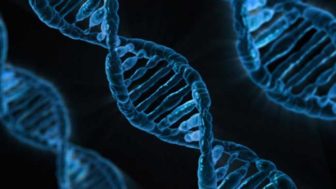
January 29, 2018; Washington Post
A Sundance Film Festival feature documentary from Britain’s Tim Wardle, Three Identical Strangers, in the words of the Washington Post’s Steven Zeitchik, “hurls questions at a well-known charity.” That this film won a special jury prize for storytelling makes it all the more inauspicious for that large nonprofit, The Jewish Board.
After a giddy setup, this bizarre-but-true story of triplets separated at birth eventually finding each other turns into a conspiratorial thriller for us and a nightmare for the triplets as the odious reasons why they were split up are revealed. Spoiler alert: The Louise Wise Services adoption agency in New York agreed to place Jewish adoptees from the 1950s to 1970s in a longitudinal social-engineering experiment designed by a Holocaust survivor.
The story of Robert Shafran, Edward Galland, and David Kellman accidentally finding each other at age 19 went viral in 1980s fashion. They got an apartment in Manhattan together, appeared on shows like Donahue and in the Madonna movie Desperately Seeking Susan, and they opened an upscale restaurant called Triplets. Their joy of reconnection veers into a harrowing mystery fraught with disturbing ethical violations. They were not typical adoptees.
Instead, they were part of a secret study conducted by the Austrian-born psychoanalyst Peter Neubauer, who ran the Child Development Center. As part of Neubauer’s research, the triplets, along with as many as a dozen more sets of identical siblings, were surreptitiously split up and placed with families of different socioeconomic backgrounds, then raised separately so that Neubauer’s team could study the effects of nature and nurture. No one told the adoptive parents their children had identical siblings.
Researchers over the following years were regularly sent to adopted children’s homes to test the children, then reported back to the psychoanalyst. They never revealed to parents the true purpose of their visit or that their child’s identical sibling was often living just a few miles away.
Louise Wise Services closed in 2004. Spence-Chapin agreed to preserve and manage its 80 years of adoption records. The Jewish Board of Family and Children’s Services (The Jewish Board) merged with the Child Development Center, which conducted the study. The film and the surviving two triplets accuse The Jewish Board of not admitting responsibility, of refusing to release the study’s sealed records (housed at Yale University), and of not offering an apology, let alone financial compensation.
Given the size of The Jewish Board, there is a lot to lose in not resolving these issues amicably. As NPQ reported, The Jewish Board grew from a $175 million agency to a $250 million agency when it absorbed FEGS (Federation Employment Guidance Services) in 2015, making The Jewish Board the largest human services agency in the State of New York. But there is also much at stake for the unwitting participants in Peter Neubauer’s social experiment.
Sign up for our free newsletters
Subscribe to NPQ's newsletters to have our top stories delivered directly to your inbox.
By signing up, you agree to our privacy policy and terms of use, and to receive messages from NPQ and our partners.
The long-term toll the separation took on all three was potentially deep, they said. Galland committed suicide in the 1990s, a possible victim of a hereditary mental illness the two other brothers say was withheld from them.
In the film, viewers understand well before they are told why Galland is absent from the current-day interviews. When asked to respond to the allegations made in the Wardle’s film, The Jewish Board provided the following statement to the Washington Post.
“The Jewish Board does not endorse the study undertaken by Dr. Peter Neubauer, and is appreciative that the film has created an opportunity for a public discourse about it,” it said. “For many years, The Jewish Board has been, and will continue to be, committed to providing individuals identified as part of the study access to their records in a timely and transparent manner. To date, we have provided records to all individuals who were subjects of the study who have sought them. Because of confidentiality laws, as well as the recognition of the enormous human impact of this study, access to records has been extremely narrow, to these individuals. We hope that the film encourages others to come forward and request access to their records.”
It added, “The Jewish Board had no role in the separation of twins adopted through Louise Wise.”
Yes, but Wardle, who spent five years digging for data and producing the documentary, described the pages of the study the brothers were given as being so heavily redacted as to be utterly useless. And how would other subjects of this hideous study even know they were subjects in order to seek their records? Steven Zeitchik reports, “Wardle alluded to several television-film attempts that were made before, and said he believed they didn’t move forward because of legal pressure.”
Several YouTube interviews, like those here and here with Wardle, include discussions about these conspiracy theories to shut down the story. Neon will be the distributor for Three Identical Strangers, guaranteeing wide distribution. This story about the insidious and incalculable emotional damage done has the capacity to go viral in 2018 fashion. It also all but demands a sequel.
Before the advent of institutional review boards, Peter Neubauer and his team could legally separate identical twins and place them with families that they kept in the dark. “Strangers” is not the first time the story of this longitudinal study of nurture vs. nature was told in a documentary. Wardle is simply a better storyteller. If other documentary festival winners are any indication (e.g., Weiner, The Fog of War, How to Survive a Plague, and Deliver Us from Evil), The Jewish Board may need to become much more forthcoming in the months ahead.—Jim Schaffer












